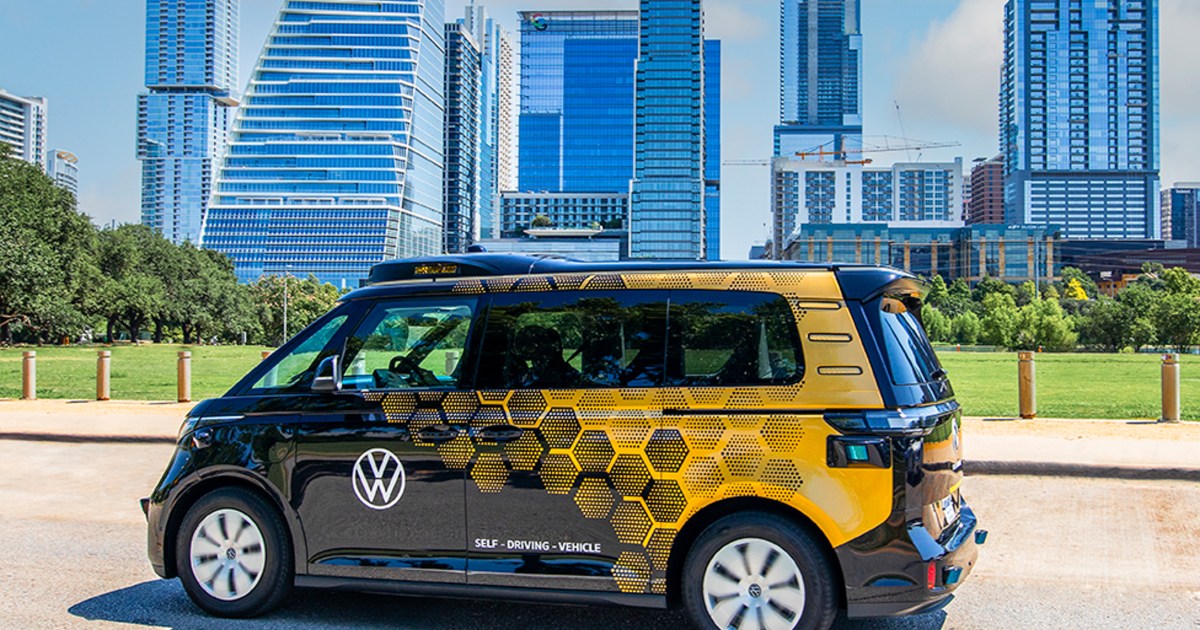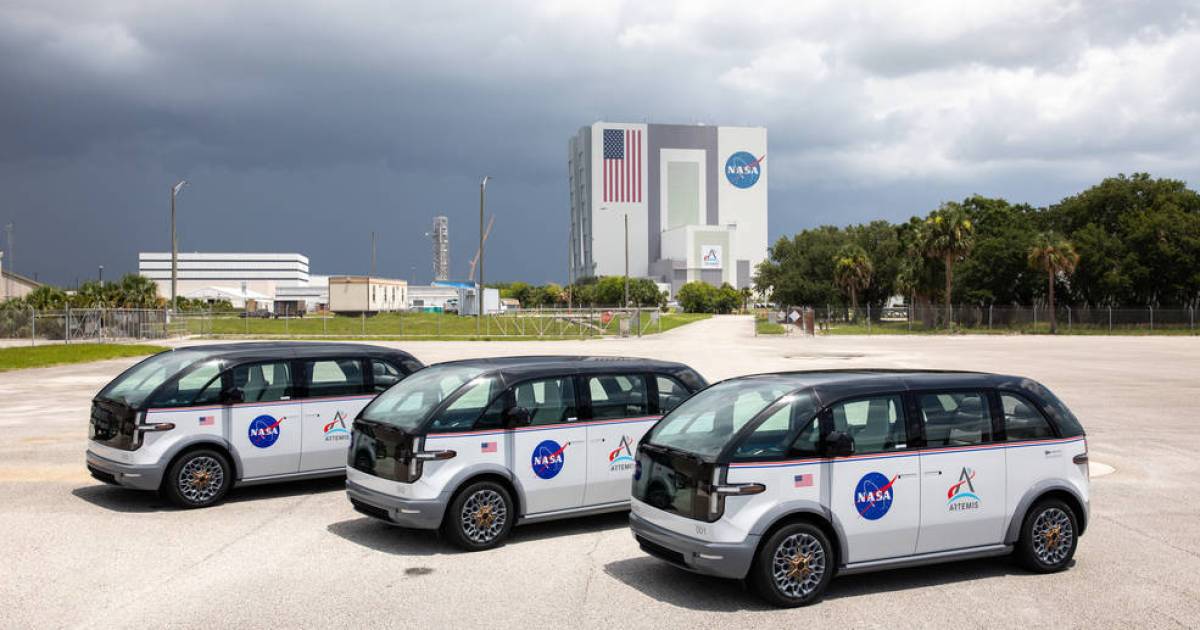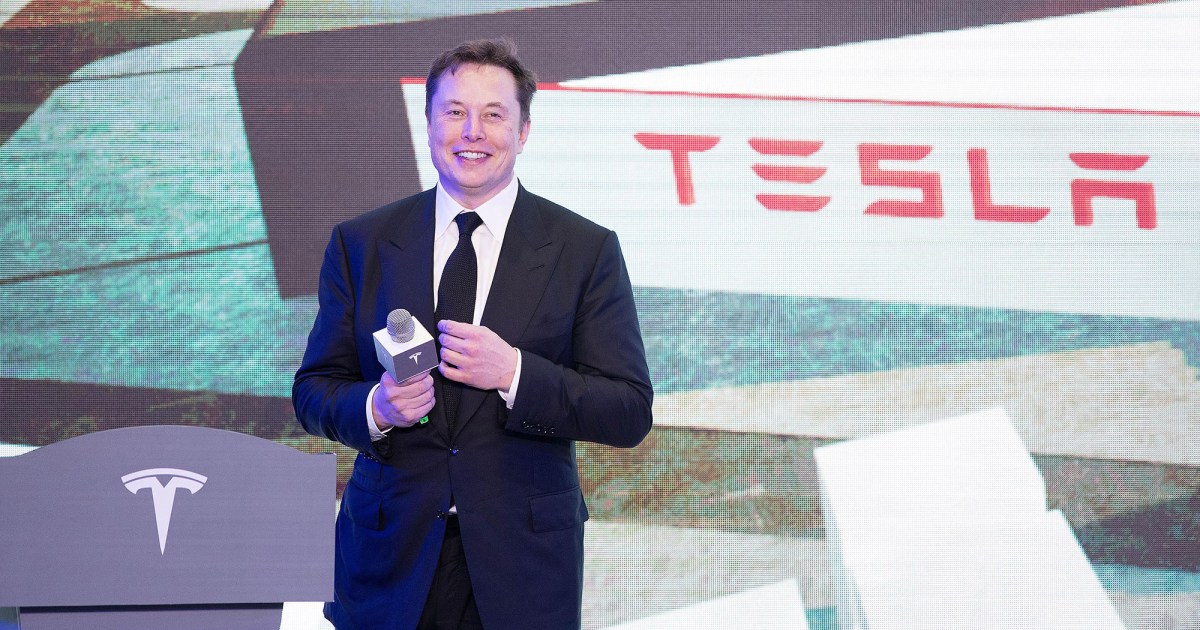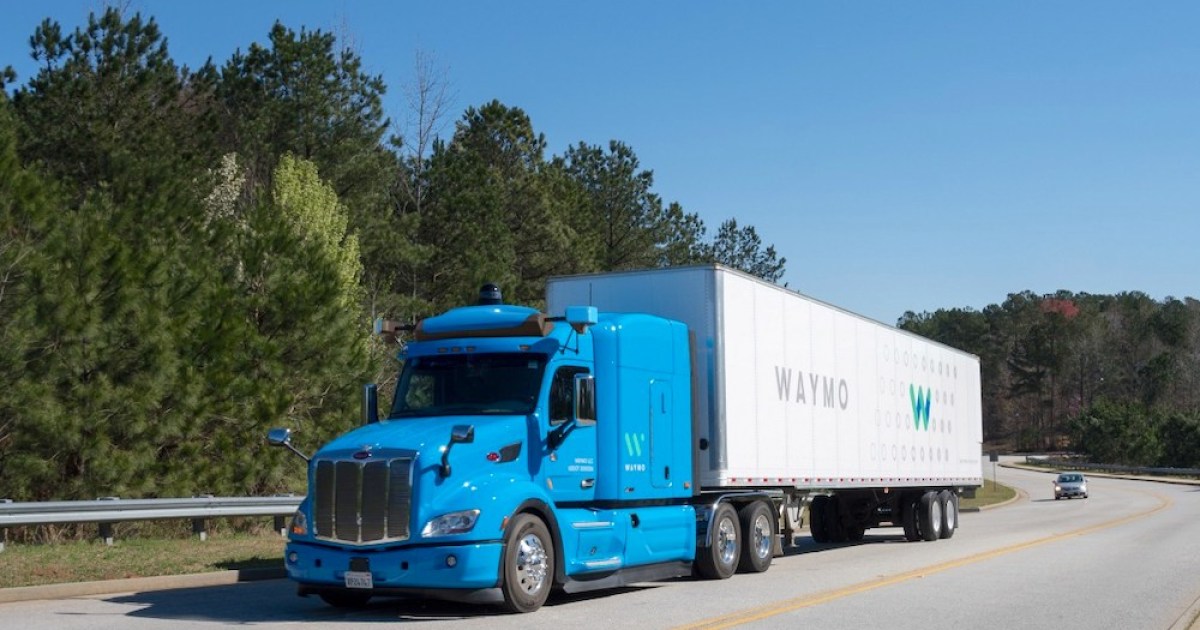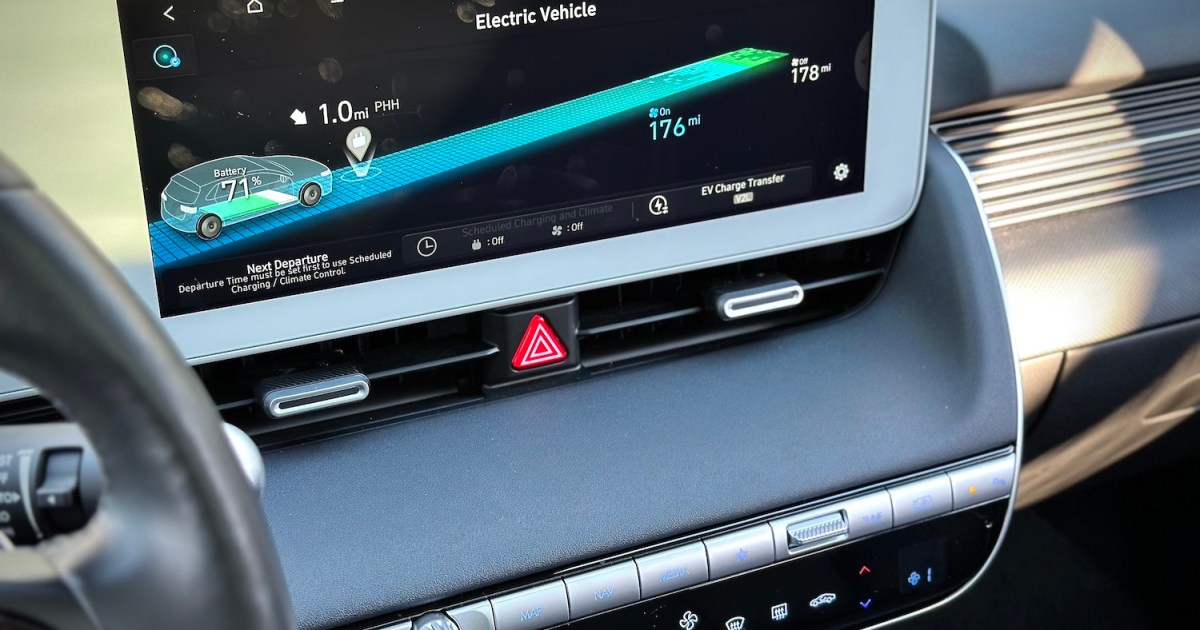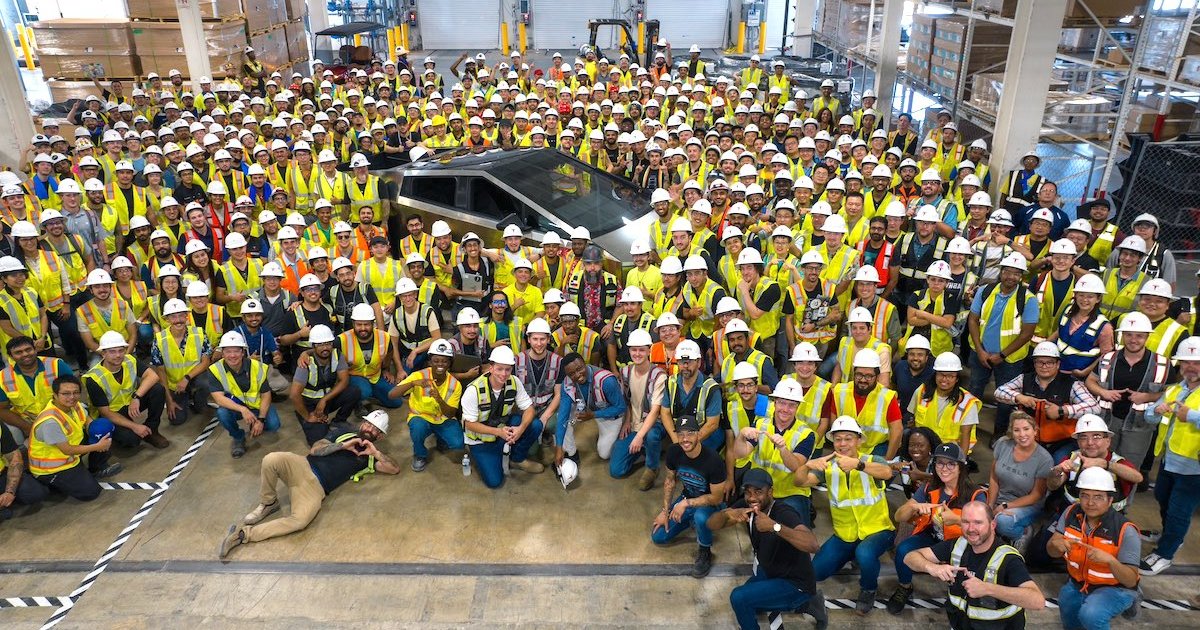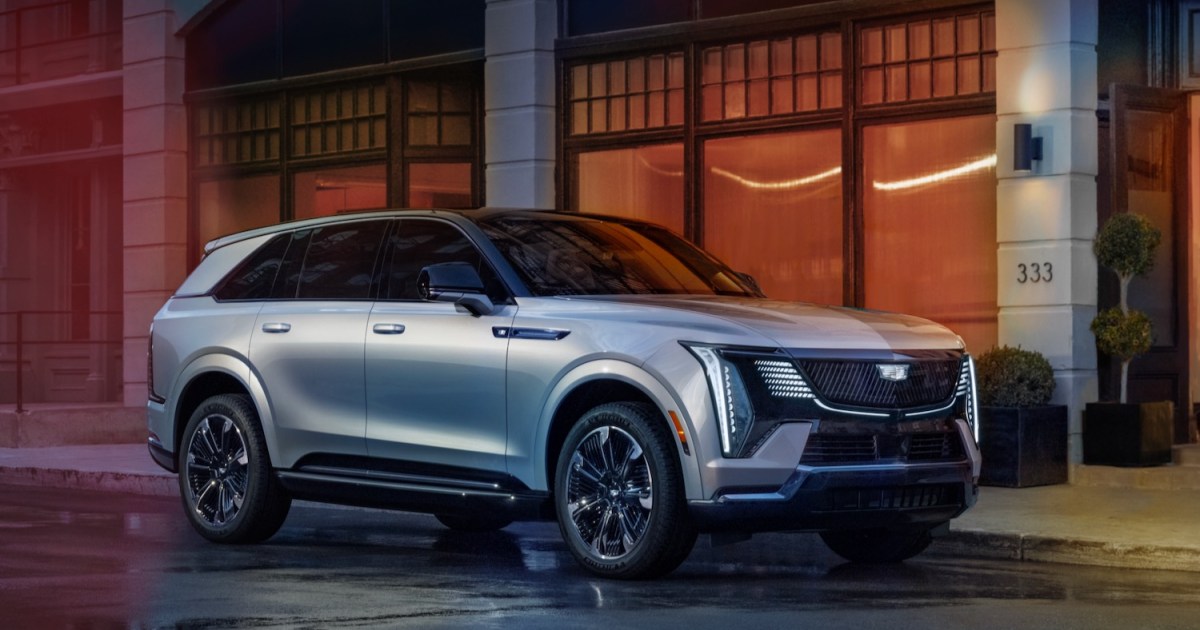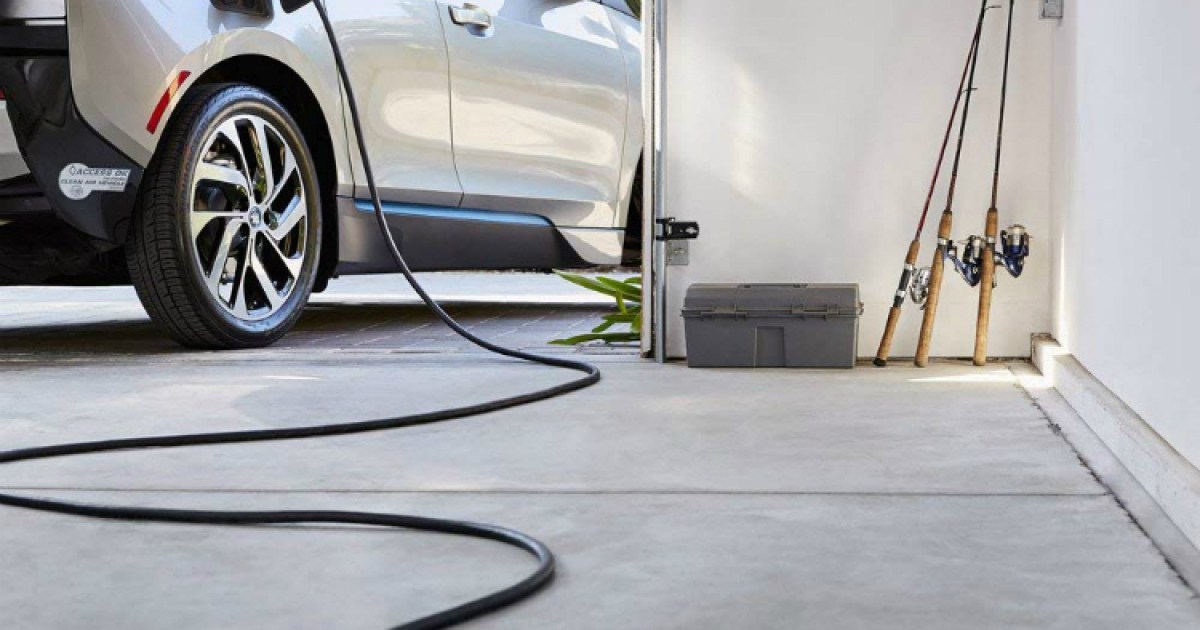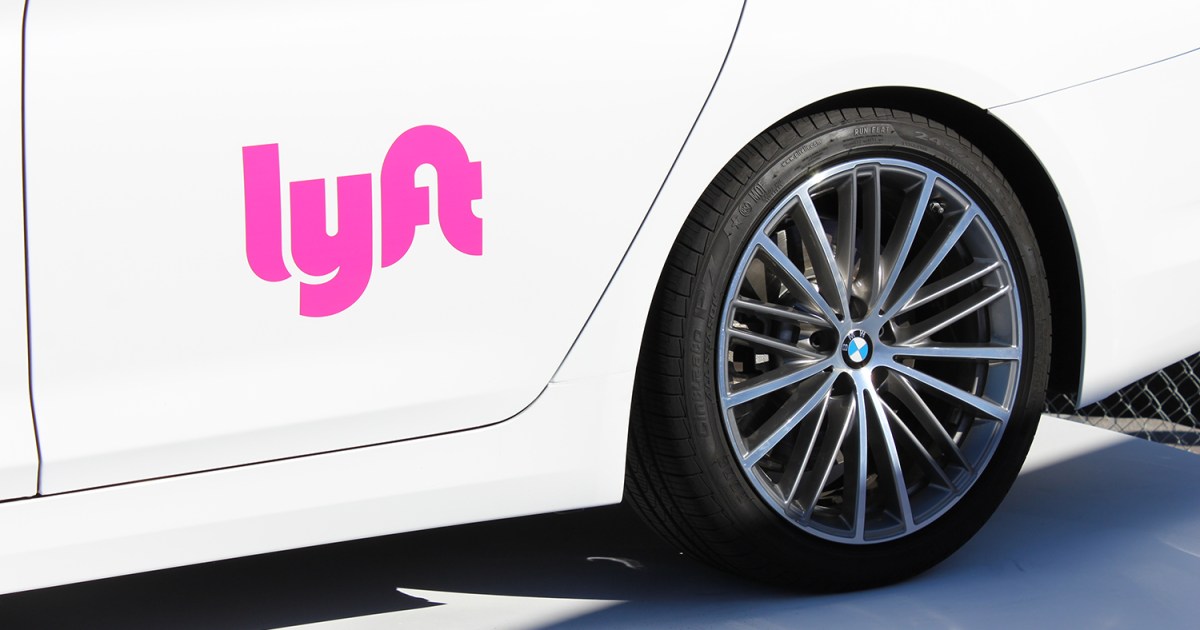Volkswagen is stepping up its efforts in the autonomous driving arena. While companies like Tesla and Waymo have been at the forefront of this technology, traditional automakers are now significantly increasing their investments. Volkswagen has announced its inaugural autonomous driving program in the United States, marking a key development in this evolving landscape.
This program involves a fleet of 10 all-electric ID. Buzz vans equipped with autonomous driving technology, developed in collaboration with Mobileye, a leader in autonomous vehicle technology. Currently operating in Austin, Texas, Volkswagen plans to expand this fleet to at least four more cities in the coming years, with the goal of commercially launching autonomous vehicles in Austin by 2026.
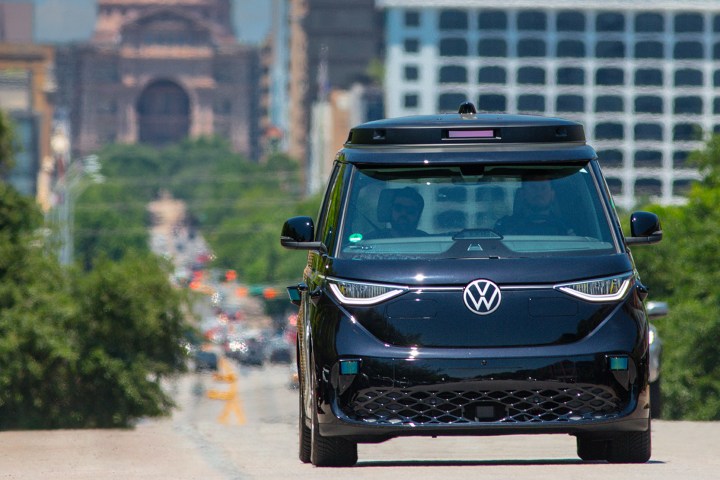 Volkswagen self-driving ID. Buzz in AustinVolkswagen’s electric ID. Buzz vans are being tested in Austin, Texas as part of their autonomous vehicle program.
Volkswagen self-driving ID. Buzz in AustinVolkswagen’s electric ID. Buzz vans are being tested in Austin, Texas as part of their autonomous vehicle program.
“We are thrilled to bring our exciting ID. Buzz vehicles to American roads,” stated Pablo Di Si, President and CEO of Volkswagen Group of America. “Expanding Volkswagen Group’s global autonomous driving vehicle program to the United States marks an important milestone for us. In the future, we will tap into rising demand for new mobility services, and with our iconic ID. Buzz, we will also offer a truly captivating product to support transportation services American consumers can rely upon and trust.”
While the testing is underway in Austin, it doesn’t necessarily translate to immediate benefits for local residents. The program doesn’t seem to involve a ride-sharing component like Waymo’s operations in San Francisco. Volkswagen’s primary objective is to eventually deploy self-driving cars on American roads. Whether this involves selling these vehicles to individual consumers or integrating them into a ride-hailing service remains to be seen.
The Race to Autonomous Driving
Volkswagen is not alone in its pursuit of self-driving technology. Most major automakers are actively involved in developing this technology to varying degrees. Current self-driving features are mostly limited to adaptive cruise control and similar basic functionalities. However, many manufacturers are introducing more sophisticated systems capable of handling lane changes and highway driving without driver intervention. Tesla, for instance, offers what it terms “full self-driving,” although it still requires driver supervision and occasional intervention.
Volkswagen’s Vision for the Future of Mobility
Volkswagen’s ultimate ambition is to offer safe and reliable autonomous transportation solutions. This initiative aligns with the growing demand for innovative mobility services. The ID. Buzz, with its distinctive design, is poised to become a key player in this transformation.
Volkswagen aims to leverage its autonomous driving technology to address the evolving needs of consumers, offering a compelling product that inspires trust and confidence. The company’s commitment to this technology underscores its vision for the future of transportation.



